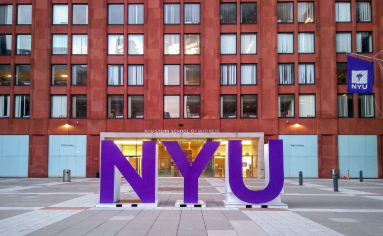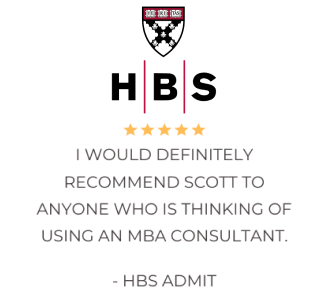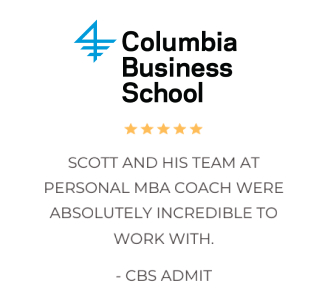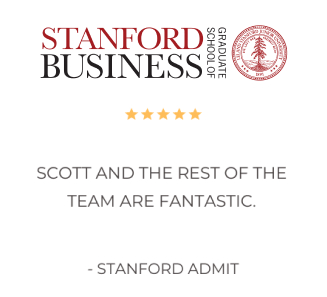The MIT Sloan School of Management Executive MBA application for the 2024-2025 application cycle is now open. The MIT Sloan EMBA application once again includes three required essay questions and four straightforward short-answer questions. There is also one optional essay.
For those interested in the MIT EMBA Program, take a look at the latest class profile to assess whether the school may be a good fit for you.
Below, please find the upcoming application deadlines and our analysis of the MIT EMBA application essays.
The 2024-2025 MIT EMBA Application Deadlines Are:
Early Round: December 5, 2024
Round 1: January 2, 2025
Round 2: February 6, 2025
Round 3: March 6, 2025
Round 4: April 3, 2025
Round 5: May 8, 2025 (the school will accept application until June 1, 2024 as space permits)

2024-2025 MIT EMBA Application Essays
MIT Sloan EMBA Essay 1: Leading Others Through Adversity (200 words or less)
Tell us what you learned about your strengths and weaknesses as a leader during a recent challenging period for your team.
With 200 words at your disposal, we recommend choosing a recent difficult time that can be easily described and whose complexity is clearly stated. After describing the difficulty, explain quickly and concisely what you did that had impact in this situation: a decision you made or an action you took. Be specific and show the impact or effect it had on your team. Finally, devote the last few sentences to what you learned about yourself from this. Perhaps you rose to a challenge you had not expected, or you discovered leadership skills you did not know you had, or perhaps you learned that people rely on you more than you thought.
End by looking toward the future and how the power from that lesson will stick with you.
MIT Sloan EMBA Essay 2: MIT Sloan finds strength through diversity. We believe that a commitment to diversity, inclusion, equity, and well-being is a key component of both principled leadership and sound management practice. We seek to create a community that encompasses all dimensions of diversity and fosters excellence within MIT Sloan. This includes diversity of identity, thought, role, and perspective.
Please describe a time when you contributed toward making a work environment or organization more welcoming, inclusive, and diverse. (200 words or less)
This second essay gives applicants another opportunity to share their leadership strengths. This time, with a focus on DEI. MIT Sloan wants to see a specific example of how you have helped other feel more included and/or improved working environments. If you are struggling to come up with an example here, it is ok to think of diversity and inclusion broadly here.
For this short essay, select a situation that is easy to explain. Then tell the MIT admissions committee what you did to make the situation or environment more inclusive or better, giving the necessary detail. Show any leadership you practiced and any opposition you may have faced. Finally, cite information/statistics to show how your action made the situation more inclusive or welcoming. If you can show systemic change, that is even better but of course not required!
MIT Sloan EMBA Essay 3: Please tell us about a time when you introduced an idea that changed the way in which your organization approached a business challenge or opportunity. What factors did you consider, what barriers or obstacles did you face, and how did you measure success? (300 words or less)
Here, choose something meaty from your leadership and initiative pile that you can develop in detail. This does not have to be an initiative in your professional context: It could be extracurricular as well if it brought about lasting change in an organization.
Start by sharing the idea and any context readers need to know to appreciate its value. For example, a systemic problem in organizational structure or an opportunity that would be sadly missed because of poor communication between departments. Or a situation that made you think, “Why don’t we try XXX?”
Then, discuss how you developed your idea, the research and analysis you put into showing that it would work, any opposition or challenges you faced, and the creative initiative you engaged to put your idea forward and sell it. That is the bulk of the essay. Show your analytical and problem-solving prowess.
Finally, tell the admissions committee what came of your effort—how the nearly missed opportunity was turned around or how the business problem was solved. Dedicate the final words to any important lessons you may have learned.
The MIT Sloan EMBA application also includes four short-answer questions:
General Management Experience: Please describe your General Management experience. Cite a recent example that demonstrates your general managerial perspective. (100 words)
For this short answer you want to sum up your general management experience. Then choose one situation/anecdote that captures most specifically and fully the range of functions/people/challenges you have managed and demonstrates your managerial abilities. It could be a specific and challenging merger that required putting out a lot of fires, for example, or the decision to lay off people and merge departments. You want to be as specific as possible in showing the impact of your managerial prowess.
Principled Leadership: Describe a principle that motivates you in your life and career. How have you put this principle into practice? (100 words)
Choose a leadership principle that matters a great deal to you and briefly explain why it is a motivating value in your life/work. Next, share an example of how you applied it as a leader. If honesty is your principle, try to pick something that illustrates how applying that might have been particularly difficult: informing a client of something critical, or making a painful staffing decision.
Goals: What are your immediate and long-term professional objectives and what do you need to achieve them? (100 words or less)
With only 100 words, you should very briefly explain both your short-term and long-term professional goals (for more on how you think about your goals, check out this blog). Then, tell the reader what skills you need to acquire to reach these goals. DO NOT include a laundry list of skills here; instead home in on a few key areas.

Why Now?: Why is this the right time to pursue the MIT Executive MBA? (100 words or less)
There is no one answer as to why NOW is the right time for an MBA so be honest here. Perhaps you have reached a plateau at work and need the MBA to help you reach the next level. Perhaps you are looking to make a career pivot and the MBA will help you. For example, we have worked with health care professionals looking to expand the scope of their role outside of clinical practice. Or maybe you are an entrepreneur looking to close key skill gaps to be successful in your next venture. Regardless of the reason, make it clear to the reader how an MIT EMBA, NOW, is crucial to your success.
The MIT Sloan EMBA application also includes an optional question:
Here you may provide any additional information you would like the Admissions Committee to know that may be helpful in evaluating your candidacy. For example:
- How has the world you come from shaped who you are today? For example, your family, culture, community, all help to shape aspects of your life experiences and perspective. Use this opportunity if you would like to share more about your background.
- Would additional context help the committee to understand the significance of an honor or award from your resume?
- What would you like to tell us about your hobbies or non-profit work?
- Is there anything else you want to share?
For guidance on whether you should write an optional essay, check out Personal MBA Coach’s blog here.
Need help with your MIT Sloan EMBA Application?
Find out more about how we can help you achieve MBA application success with our EMBA Comprehensive Packages.




















